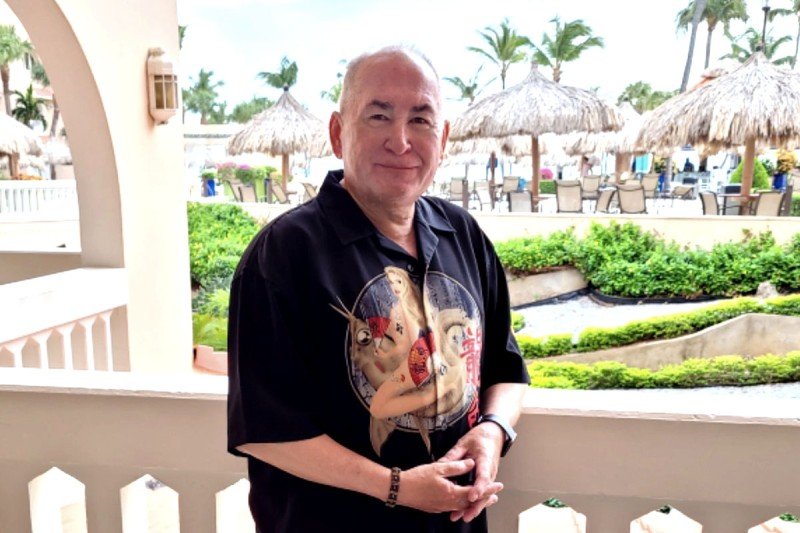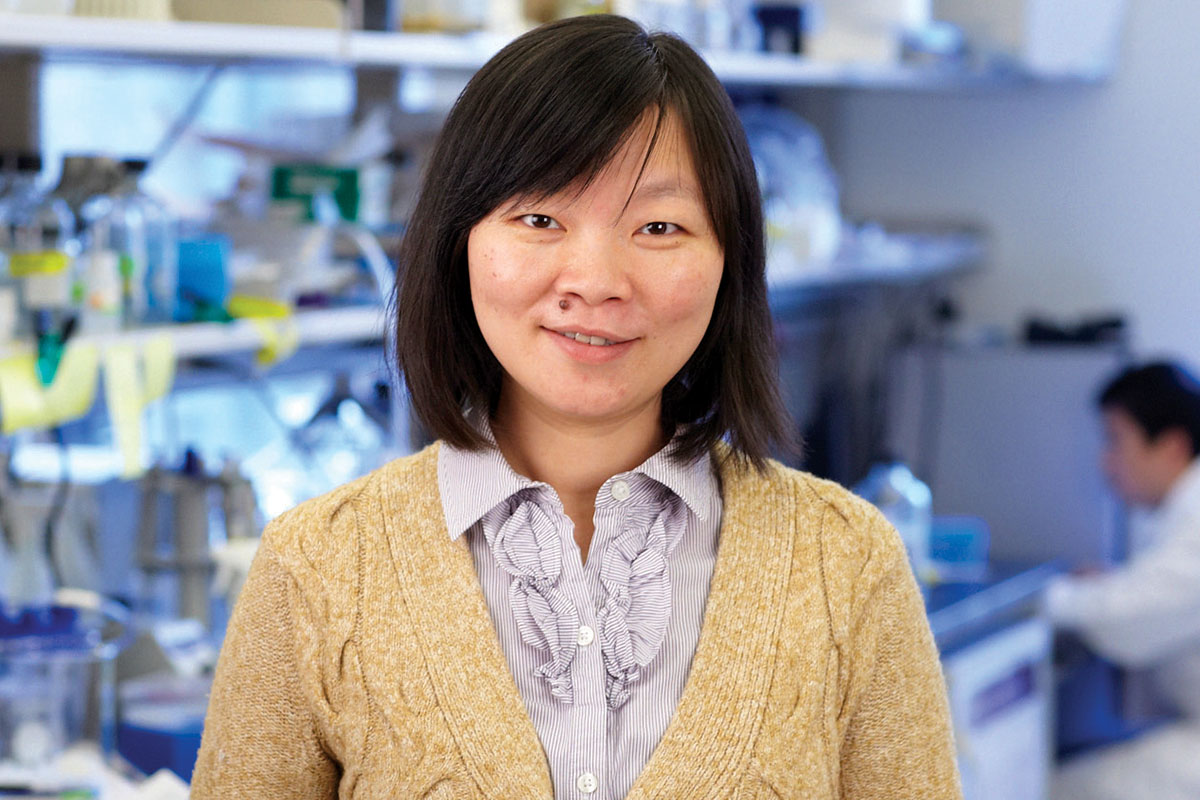
When Luis Portiansky had his first surgery in 1993 for a rare form of cancer that developed in his stomach, Ping Chi was still an undergraduate student at Mount Holyoke College in Massachusetts. More than two decades later, when Luis’ cancer came back for the third time, Dr. Chi was a physician-scientist at Memorial Sloan Kettering Cancer Center leading a clinical trial that could save his life. It tested a combination therapy for Luis’ type of cancer — called gastrointestinal stromal tumor (GIST).
Luis, now a 70-year-old retired marketing executive, joined the trial in September 2017. Thanks to the combination therapy developed by Dr. Chi, his tumors are no longer growing and he feels good most of the time. He’s been able to maintain an active lifestyle, including going on long bike rides with his wife and supporting other patients with GIST.
“In the first year and a half, my tumors shrunk by about 50%, and since then they have been stable,” he says. “We feel like they may be slowly dying off.”
Dr. Chi published the results of the phase 2 trial in which Luis participated in the Journal of Clinical Oncology (JCO) in January 2022. She reported that combining imatinib (Gleevec®), the standard drug treatment for GIST, with binimetinib (Mektovi®), a drug used to treat melanoma, resulted in a significant improvement compared with the response rate historically seen in patients treated with imatinib alone. Many patients in the trial, including Luis, have continued to do well for years.
Lab Discoveries a Decade Ago Benefit Patients Now
The trial is based on studies Dr. Chi conducted when she was a postdoctoral research fellow at The Rockefeller University, in collaboration with MSK investigators Yu Chen and Charles Sawyers. In a paper published in Nature in 2010, she reported findings about the molecular changes that occur in GIST cells that would eventually lead to the combination of drugs used in this trial. Her research continued when she started her own lab in MSK’s Human Oncology and Pathogenesis Program in 2011.
Imatinib is a targeted therapy that was originally developed for treating chronic myeloid leukemia: It targets a cancer-causing protein called BCR-ABL. But researchers realized early on that because it also blocks a protein called KIT, which plays a role in GIST, it could be effective at treating that type of cancer as well. In the early 2000s, some of the first clinical trials to study imatinib for treating GIST were done at MSK.
GIST is a type of soft-tissue sarcoma — a group of cancers that begin in the body’s connective tissues, including muscle, fat, nerves, and tendons. It can occur throughout the gastrointestinal tract. It’s different from more common forms of stomach, colon, and rectal cancer because it develops from another kind of cell. MSK has top experts in treating all types of soft-tissue sarcoma, including GIST, which is diagnosed in about 5,000 people every year in the United States.

Improving Outcomes With Combination Therapy
The GIST trial was directly informed by Dr. Chi’s lab work, including her study of patient samples. Patients who take imatinib for GIST often develop resistance to the drug and stop responding. Dr. Chi learned that this is because imatinib mostly inhibits tumor cell growth but does not completely kill the tumor cells. Her research showed that tumor cells can adapt to imatinib treatment and survive partly due to another protein called ETV1.
The melanoma drug binimetinib helps to degrade this protein; that gave Dr. Chi the idea to combine the two drugs. Using the drugs together worked better than imatinib on its own, and patients appear to have a deeper response and to be less likely to have their tumors grow back, the new trial has shown.
When His Cancer Came Back, Luis Came to MSK
When Luis was first diagnosed with having a stomach tumor, doctors at the hospital on Long Island where he had his surgery told him it was a leiomyosarcoma, a different type of soft-tissue sarcoma. In 2003, his tumor came back. That time, after performing another operation, the doctors told him his tumor might be a GIST instead.
In 2017, he learned that his cancer had returned again. This time, doctors told him that it was metastatic, located in several sites in his abdomen, and that it was definitely a GIST. Luis decided to come to MSK.
There he met with Samuel Singer, Chief of MSK’s Gastric and Mixed Tumor Service and Director of the Sarcoma Center. Dr. Singer told Luis that his cancer was no longer operable, but that he was a good candidate for Dr. Chi’s clinical trial.
“This trial has been quite literally lifesaving,” Luis says.
The Sarcoma Center at MSK aims to further define the molecular abnormalities that drive the initiation, maintenance, and progression of every sarcoma type and subtype. Learn more.
Some patients in the trial, including Luis, have had side effects. These included skin problems and swelling around the eyes. Luis also had some problems related to his heart function, but those were brought under control by reducing his dose of binimetinib.
“At MSK, I feel like there’s a whole specialty team that’s available to me whenever something unusual pops up,” he says. “I also appreciate that I can have my bloodwork and scans at MSK Nassau in Uniondale near my home, so I don’t have to travel into the city so often.”
The phase 2 trial was conducted completely at MSK, something that Dr. Chi says is unusual for such a rare cancer. “I have to thank our whole disease management team, who worked with us to help identify appropriate patients for this trial.”
“This trial is an amazing story stemming from Dr. Chi’s lab work,” says William Tap, Chief of MSK’s Sarcoma Medical Oncology Service and senior author of the JCO paper. “She saw it through to clinical realization, and it has led to a treatment that we are very interested in developing to potentially help the lives of many patients.”
- MSK researchers recently reported results of a phase 2 trial for GIST, a rare form of gastrointestinal cancer.
- The trial was based on years of lab work conducted by physician-scientist Ping Chi.
- It combines the standard drug for GIST, imatinib, with another drug that’s currently used to treat melanoma.
- Patient Luis Portiansky has been enrolled in the trial for more than four years and continues to do well.






